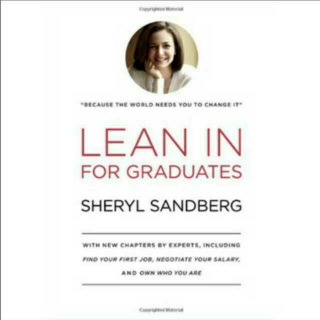
介绍:
Lean In Sit at the table Page 31
For women, feeling like a fraud is a symptom of a greater problem. We consistently underestimate ourselves. Multiple studies in multiple industries show that women oftenjudge their own performance as worse than it actually is, while men judge their own performance as better than it actually is. Assessments of students in a surgery rotation found that when asked to evaluate themselves, the female students gave themselves lower scores than the male students despite faculty evaluations that showed the women outperformed the men. A survey of several thousand potential political candidates revealed that despite having comparable credentials, the men were about 60 percent more likely to think that they were “very qualified” to run for political office. A study of close to one thousand Harvard law students found that in almost every category of skills relevant to practicing law, women gave themselves lower scores than men. Even worse, when womem evaluate themselves in front of other people or in stereotypically male domains, their underestimation can become even more pronounced.
Ask a man to explain his success and he will typically credit his own innate qualities and skills. Ask a woman the same question and she will attribute her success to external factors, insisting she did well because she “worked really hard,” or “got lucky,” or “had help from others.” Men and women also differ when it comes to explaining failure. When a man fails, he points to factors like “didn't study enough” or “not interested in the subject matter.” When a woman fails, she is more likely to believe it is due to an inherent lack of ability. And in situations where a man and a woman each receive negative feedback, the woman's self-confidence and self-esteem drop to a much greater degree. The internationalizaton of failure and the insecurity it breeds hurt performance, so this pattern has serious long-term consequences.
And it's not just women who are tough on themselves. Colleagues and the media are also quick to credit external factors for a woman's achievements. When Facebook filed to go public, The Newyork Times ran an article that kindly reminded me-and everyone else-that I had “been lucky” and “had powerful mentors along the way.” Journalists and bloggers rose up to highlight the double standard, pointing out that The New York Times rarely ascribed men's success to having been lucky. But the Times didn't say anything that I had not already told myself a thousand times. At every stage of my career, I have attributed my success to luck, hard work, and help from others.
大家还在听

